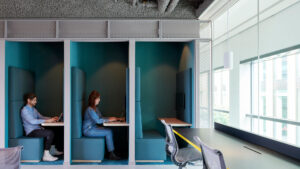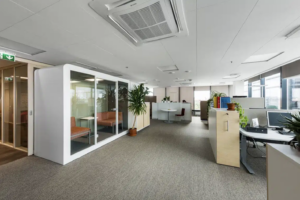Creating an Inclusive Work Space for Neurodivergent Employees
Do you consider neurodivergent employees when designing at your office space?
At ENI, we spend a lot of time looking at DE&I initiatives, trying to raise awareness on inclusive recruitment and all that involves.
One thing that doesn’t get mentioned as often is inclusive workplace design and how this can make a difference to employees’ experience in the office.
In one of our weekly team meetings, we discussed the office needs of the team, and it became apparent that everyone had a different opinion.
For example, some people wanted to be open plan where we can all communicate easily, hear each other, and learn from each other. Others wanted quiet areas to make phone calls or to do focus work – the hustle and bustle of the office is too distracting.
Both approaches seem sensible. Some of these office hurdles may be amplified for someone who is neurodivergent so creating an inclusive space is important if you want to be a company that embraces inclusivity.
Approximately 75-80% of the general population are considered neurotypical, leaving the remaining 15-20% considered as neurodivergent.
In the ideal world, we will be creating a workspace that will support everyone’s differences as much as we can but even if we can’t do everything, we can certainly look at doing some things that might really make a difference to a person’s experience whilst in the office.
Things that might be worth considering include:
- Collaborative areas for extraversion
- Low stimulation areas for focus
- Quiet rooms for intense concentration
- Low-footfall areas to relieve social anxiety
- Active zones or offices to promote movement
- Materiality and lighting to create soothing environments
- Furniture laid out to indicate purpose
If you have a small office space, thi s may seem totally impossible, but now there are so many different furniture options out there that can help create some elements listed above.
s may seem totally impossible, but now there are so many different furniture options out there that can help create some elements listed above.
Have a look at your own office space and see if you can identify where it could be more inclusive!
Follow us on LinkedIn to stay up to date with the latest topics, trends and roles across insight and analytics.
Click here to head back to our resources section.
Get in touch: hello@elizabethnorman.com
